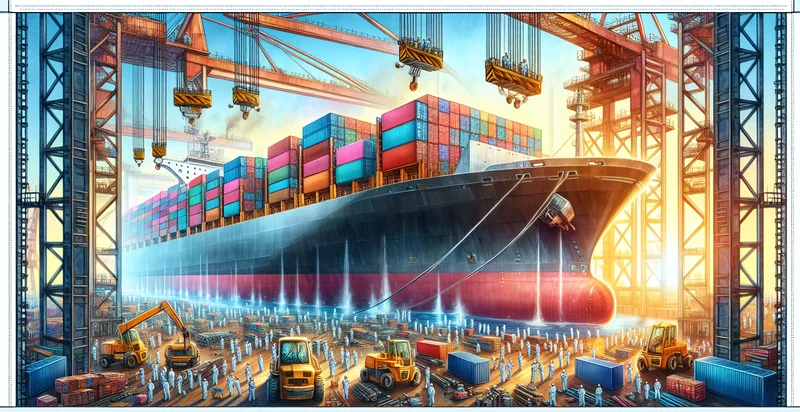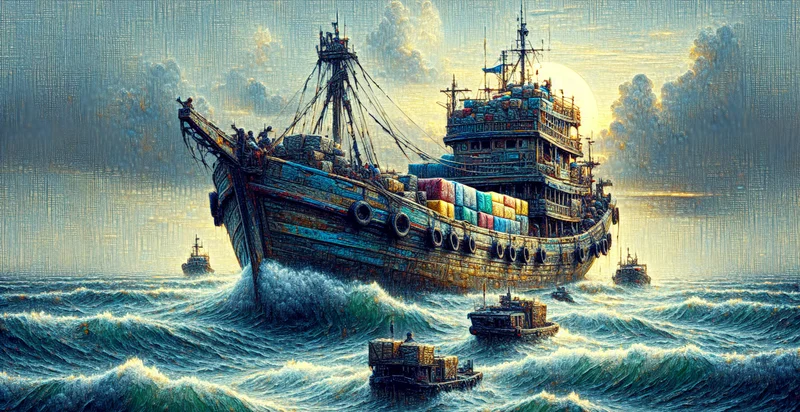Identify cargo ship make
using AI
Below is a free classifier to identify cargo ship make. Just upload your image, and our AI will predict what type of cargo ship it is - in just seconds.


Contact us for API access
Or, use Nyckel to build highly-accurate custom classifiers in just minutes. No PhD required.
Get started
import nyckel
credentials = nyckel.Credentials("YOUR_CLIENT_ID", "YOUR_CLIENT_SECRET")
nyckel.invoke("cargo-ship-make", "your_image_url", credentials)
fetch('https://www.nyckel.com/v1/functions/cargo-ship-make/invoke', {
method: 'POST',
headers: {
'Authorization': 'Bearer ' + 'YOUR_BEARER_TOKEN',
'Content-Type': 'application/json',
},
body: JSON.stringify(
{"data": "your_image_url"}
)
})
.then(response => response.json())
.then(data => console.log(data));
curl -X POST \
-H "Content-Type: application/json" \
-H "Authorization: Bearer YOUR_BEARER_TOKEN" \
-d '{"data": "your_image_url"}' \
https://www.nyckel.com/v1/functions/cargo-ship-make/invoke
How this classifier works
To start, upload your image. Our AI tool will then predict what type of cargo ship it is.
This pretrained image model uses a Nyckel-created dataset and has 19 labels, including A.P. Moller, Acl, Bbc Chartering, Cma Cgm, Cosco, Dhl, Dockwise, Evergiven, Evergreen and Hanjin.
We'll also show a confidence score (the higher the number, the more confident the AI model is around what type of cargo ship it is).
Whether you're just curious or building cargo ship make detection into your application, we hope our classifier proves helpful.
Related Classifiers
Need to identify cargo ship make at scale?
Get API or Zapier access to this classifier for free. It's perfect for:
- Fleet Management: The cargo ship make identifier can assist fleet managers in tracking and categorizing their vessels. This information can enhance resource allocation and ensure compliance with shipping regulations by managing fleet composition effectively.
- Insurance Assessment: Insurance companies can leverage the cargo ship make identifier to streamline risk assessment for marine vessel insurance policies. By accurately identifying the make of the cargo ships, insurers can adjust premiums based on the vessel's specifications and historical performance data.
- Port Operations Optimization: Ports can use the cargo ship make identifier to optimize dock management and scheduling. By knowing which types of vessels are arriving, ports can allocate resources more efficiently and reduce congestion during peak times.
- Regulatory Compliance: Shipping companies can use the cargo ship make identifier to ensure compliance with international maritime regulations. This identifier can help verify that vessels meet safety and environmental standards by cross-referencing with a database of approved ship makes.
- Market Analysis: Analysts and researchers can utilize the cargo ship make identifier to conduct market studies on shipping trends and vessel types in different regions. This data can inform strategic decisions for shipbuilding companies and shipping lines.
- Maintenance Planning: Maintenance teams can benefit from the cargo ship make identifier by predicting maintenance needs based on the ship's make and model. This proactive approach can reduce downtime and enhance operational efficiency by scheduling repairs before issues arise.
- Environmental Impact Monitoring: Environmental agencies can use the cargo ship make identifier to track the types of vessels that enter specific ecosystems. This information is crucial for assessing potential environmental impacts and ensuring that proper measures are in place to protect marine environments.


